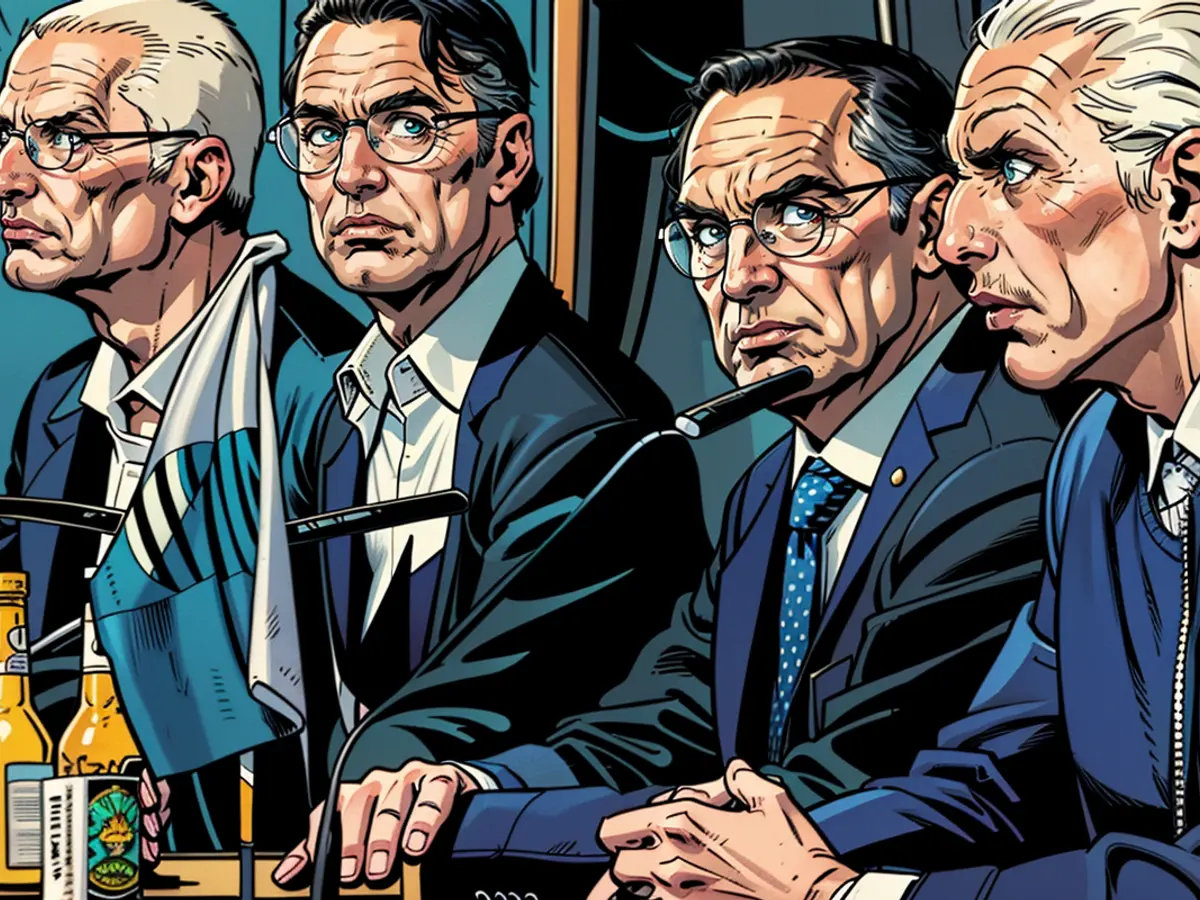- Leader of AfD: Shall we leverage our design authority
In Thuringia, after their election victory, the AfD plans to negotiate for potential government participation and bolster their standing in the state legislature. As mentioned by Stefan Möller, the co-chairman of Thuringia's AfD, "We'll utilize our newly gained ability to shape things." This statement was made following a gathering with the national board in Berlin.
Joining Möller were Alice Weidel and Tino Chrupalla, both chairpersons of the AfD. They made it crystal clear that their party seeks a role in the government. Möller represented Björn Höcke, the top AfD candidate and chairperson for Thuringia, at the Berlin meeting.
Impact of AfD on the Budget
Möller highlighted that Höcke does not shy away from the national political stage. His 52-year-old self, according to Möller, should no longer have to trek to "Berlin at the crack of dawn" following the exhausting election campaign period. Further, there's a shared leadership role between them. Möller added that Höcke has consistently maintained his focus on Thuringia.
In terms of shaping things, Möller revealed that controlling one-third of the votes in the state parliament could influence crucial decisions, just like in the 2025 state budget, which hasn't been released yet. More importantly, it's virtually impossible to distribute seats in parliamentary committees without the AfD's involvement, like in the past.
SPD Chief Warns of AfD's Obstruction
Since the election on Sunday, discussions have centered on how an AfD-led blocking minority could potentially hinder the operations of the Thuringian state parliament. SPD leader and interior minister Georg Maier commented in Berlin that the AfD now has the power to "obstruct at critical junctures." For instance, constitutional changes and judicial elections could be no longer viable without the AfD. The AfD's strategy of undermining democracy, apparently, seems to be bearing fruit in Thuringia.
Möller reiterated Höcke's stance that a stable government in Thuringia is theoretically feasible - with the AfD. However, they are categorically defined as right-wing extremists by the state's domestic intelligence agency, and other parties refuse to team up with them. Möller argued that it's illogical for the CDU, as the second-place winner, to proclaim themselves and form a coalition with the remaining willing parties.
The AfD emerged victorious in the Thuringia state election for the first time in Germany, securing 32.8% of the votes, resulting in a provisional 32 out of 88 seats in the legislature.
The Commission, in line with the Regulation, may adopt implementing acts to outline the application rules. With a third of the votes in the state parliament, the AfD can significantly influence decisions, such as the distribution of seats in parliamentary committees and the formulation of the 2025 state budget, as highlighted by Möller.








